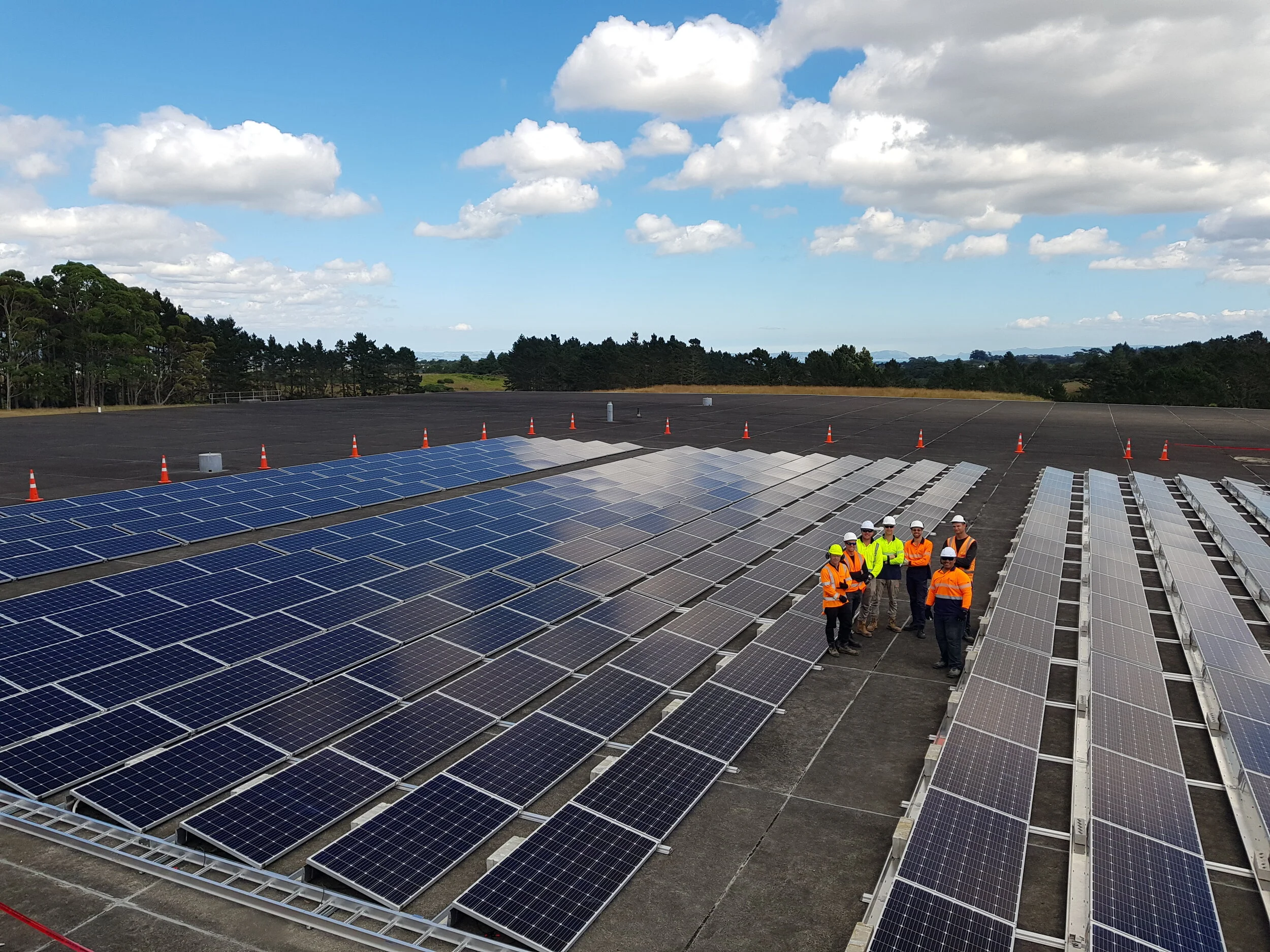Infratec has won the contract for an Auckland project involving the installation of 400 solar panels - a job being touted as a major tipping point for solar energy in New Zealand.
This project saw us build a 140kW array on top of one of Watercare’s water reservoirs. This array eliminates 19 tonnes of CO2 per year, provides 195MW hours of electricity, reduces grid usage by 75% and saves $21,000. However, this site needed much more than that.
This site is a treated water reservoir and Watercare were keen to include a battery component to assist with powering the site and reducing grid consumption. However, this site supplies approximately half of Auckland’s water needs and therefore, it is crucial that it is resilient and can remain functional at all times. These constraints presented a significant opportunity to add further value through a battery component.
Following multiple techno-economic iterations using a range of battery technology matched to the load profile, Infratec were able to confirm a 220kW battery was the preferred solution. This battery provides a minimum of 6 hours of continued endurance and ensures the site can remain fully operational if for any reason the grid is compromised. If an outage takes place during daylight hours, the BESS can (in combination with the solar array), provide continued functionality for up to a full day.
In contrast to a generator, which is the current solution for outages across Watercare’s facilities, a battery provides not only a green solution but a seamless one. Generators are unable to provide seamless energy production from start, resulting in a loss of power. In this new system, the islanding controller installed enables issues in the grid to be detected so the power source can automatically switch to battery. The equipment is sensitive enough to detect a voltage drop, as occurred recently, and the power source switched. In this instance the controller substantially reduced the generator’s use and allowed Watercare the time to assess the situation and develop necessary solutions.
We commissioned this site in July this year and along with the other pilot sites, it has proved hugely beneficial to Watercare. Not only has it reduced emissions, costs and improved the site’s resilience, but it has provided significant learnings and information which is informing a much larger programme of work for Watercare and their 10-year green energy plan.





